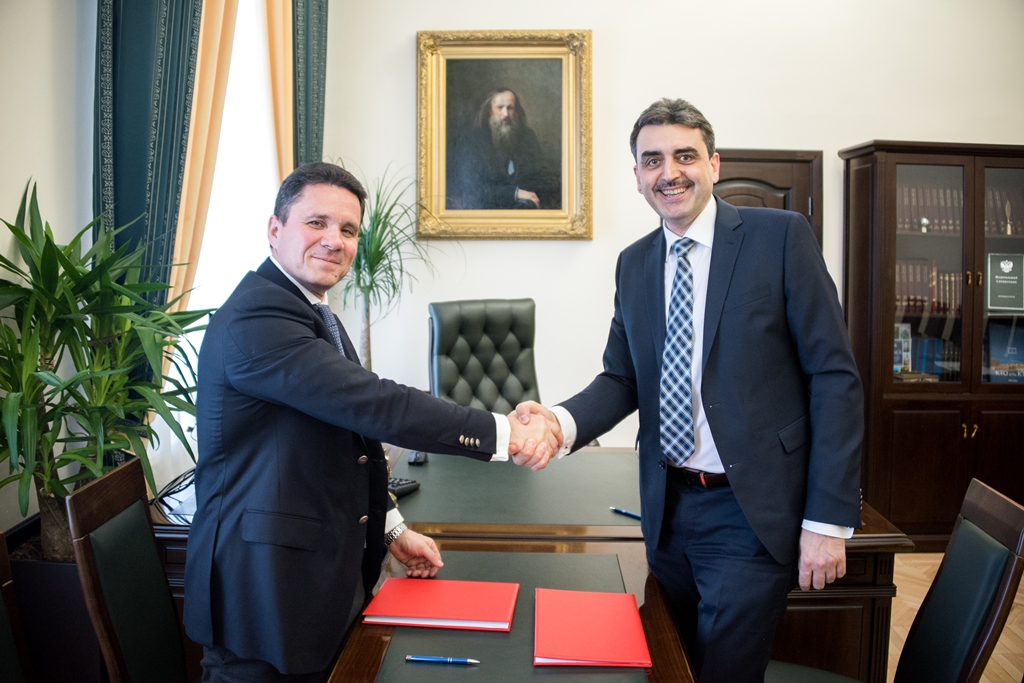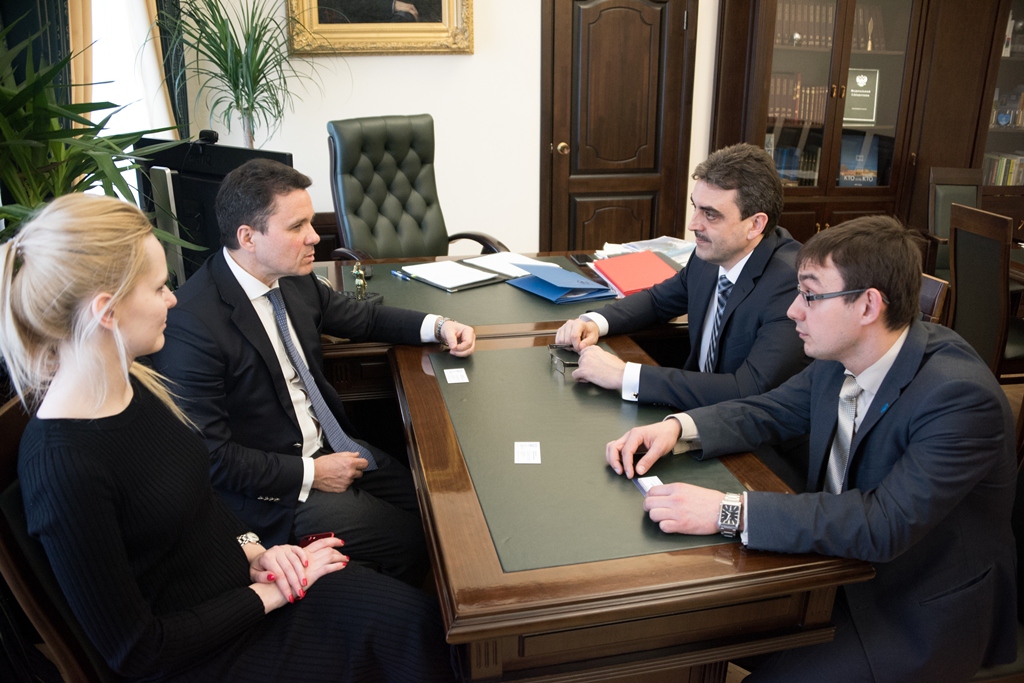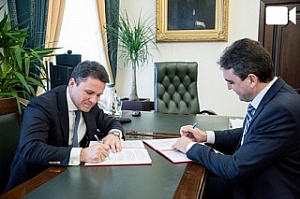TSU has signed an agreement on collaboration with the M. I. Rudomino All-Russian State Library for Foreign Literature (VGBIL). One of the areas of collaboration will be the creation of a centre for international literature, where books will be available in English, German, French, and Eastern Slavic languages, at the TSU Research Library.

- In this cultural and educational centre, we will create funds of interesting fiction and scientific literature in specialized languages in both print and in electronic form, and our partners will help to replenish them, - said Mikhail Shepel, the director of the TSU Research Library. - In addition, we plan to hold events for international students and for those who want to learn languages. This will help in developing the linguistic and cultural competencies of our employees and students.
In addition to establishing the centre within the collaboration, partner libraries will conduct courses for staff development, including in the areas of management, economics, and innovation. They are also planning joint acquisition of library funds and holding cultural and other events.
- In Russia, everything is fine with science, but we need to overcome the language barrier so that scientists feel comfortable in the global environment, - said Vadim Duda, General Director of VGBIL. - One of the mechanisms for learning the language is creating a special environment and overcoming mental barriers. I am confident that our joint work in this direction will be fruitful.

In 2015, the TSU Research Library began its modernization with the opening of a 24-hour reading room for students. Thanks to this, the number of visitors to the Library nearly doubled in a year, to 500,000 people. In early 2016, the research reading room for scientists began to operate, and as a result, the Library's attendance rose to 640,000 visitors per year.
In 2017, reading rooms for the humanities, physics and mathematics, and natural sciences are planned to be reconstructed into a single zone for communication and education.

